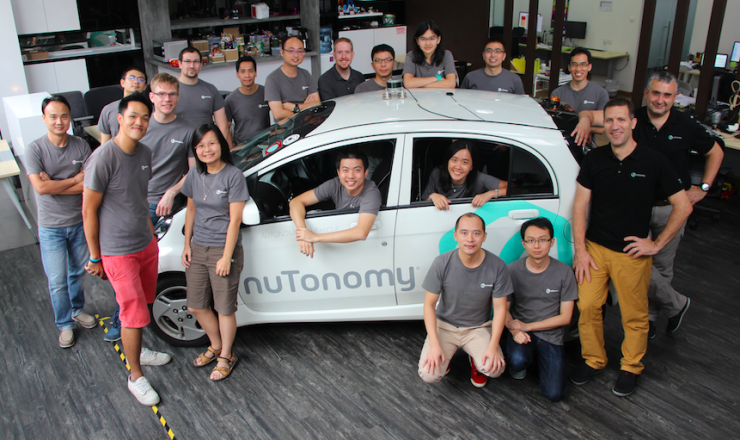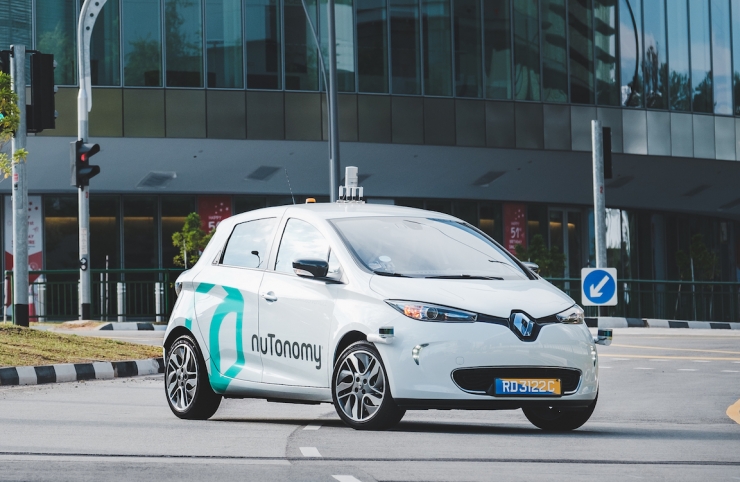
On August 25th, Singapore’s startup nuTonomy’s unmanned taxi debuted, and some members of the public will be able to call for free via smartphones.
The current car used in this service is Renault ZOE or Mitsubishi iMiEV. There are only six vehicles on the road and are expected to increase to 12 by the end of the year. Each vehicle is equipped with two workers, one is a driver who can control the steering wheel at any time, and the other is a researcher who sits in the back seat to monitor the car's computer. According to a nuTonomy spokesman, nuTonomy taxis will have no drivers, steering wheels and pedals.
nuTonomy is a company that develops driverless car software. He incubated from MIT in 2013 and later established a company from the school. The company was founded by Karl Iagnemma, a doctoral student and Emilio Frazzoli, a professor of aerospace engineering. CEO, who served as CTO. Both have more than 10 years of research experience in the field of automated driving.
This small company from Singapore just like a dark horse instantly captured the eye, what they drove the rapid landing of driverless cars in Singapore? Liu Guoqing, the founder of Minieye who studied in Singapore, analyzed this reason from the capital, policy, technology and environment to Lei Feng.
The Singapore government is very open to innovation and technology, which is also reflected in the financing of nuTonomy. In May of this year, nuTonomy received a $16 million Series A investment. In this financing, one of the investors is EDBI (an investment agency set up by the Singapore Economic Development Board) with the background of Singapore government. From this point of view, the driverless taxi developed by nuTonomy received the full support of the government.
In terms of policy, last year the government of Singapore divided a driverless experimental site at Buona Vista. The government has always had a strong passion for new technologies. For example, ASTAR (Singapore Science and Technology Research Institute) also has a lot of scientific research. Projects, even new technologies including unmanned driving.
In addition, the Singaporean government and MIT have a joint research institute SMART (Singapore-MIT Alliance for Research and Technology). Half of them are Singaporeans and half are MIT experts and scholars. The research center has many different directions, but some of it is dedicated to future transportation and driverlessness. Some SMART members have started to drive unmanned in low-speed and controllable environments such as airports and golf courses. This part is also a veteran of nuTonomy.
Liu Guoqing told Lei Fengwang (search for "Lei Feng Net" public concern) that the Minieye team had members from nuTonomy. He stated that nuTonomy is good at the integration of multiple sensors, decision making, and path planning.
In addition to the above three factors, there is a factor that Singapore has a small area, equivalent to 1/24 of Beijing. Therefore, the traffic order specification, marking line, and signal lamp standards are all unified and the environment is relatively controllable. In addition to this advantage, Singapore is also highly informatized in vehicle management.

Currently, these taxis only operate in One-North, a commercial and residential area with an area of ​​about 6.5 square kilometers, and pick up and drop off passengers at designated locations. In addition, only the public who received the nuTonomy invitation can use this service. nuTonomy claims that dozens of people have signed up for the first day of operation. The company plans to increase the number of people enjoying the service to several thousand in a matter of months.
nuTonomy CEO Karl Iagnemma stated that there is no timetable for the end of the free test ride, but the company hopes to start charging and increase the loading and unloading points. At the same time, he hopes to use his leading position in driverless driving to cooperate with automakers, technology companies, and logistics companies. nuTonomy is also planning to test similar taxi services in the United States, Europe and other Asian cities, but did not disclose the specific time.
The Associated Press reporter took a nuTonomy driverless taxi on Wednesday. The reporter only saw the safety driver step on the foot brake, because one car blocked the lane of the test taxi, while the other car appeared to be a sudden start of the car parked on the side of the road.
Delphi, a car parts supplier that has been developing driverless car software, has also recently been approved to test driverless cars in Singapore. The company's testing will begin next year.
Pang Kin Keong, Permanent Secretary of the Ministry of Transport of Singapore and Chairperson of the Ministry of Transport's Driverless Commission, said: “We are facing the constraints of land and manpower, and therefore we want to use unmanned technology to overcome these constraints. We have introduced new transportation concepts. Hope This can bring about fundamental changes in public transport in Singapore."
Related reading: Driverless taxi landing in Singapore, NuTonomy this company is the biggest hero behind the scenes
This article is a new intellectual article and welcomes attention to new intellectual driving. Wechat add "New Driver" to subscribe to the public number.

